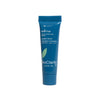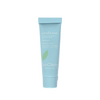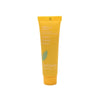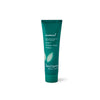Acne vs Pimples
By Abby Vinas
Types of Acne
•
3 Comments

Acne vs. Pimples — Are They the Same Thing?
Acne and pimples—we use the terms interchangeably to describe those nasty breakouts that plague our skin. But are they the same thing? If you’re like many acne-sufferers, you might notice that different parts of your body exhibit different kinds of acne and pimples that you just wish would disappear once and for all. Here’s a brief guide on the difference so you too can beat the breakout-blues.
The Cause of Acne and Pimples
 Simply put, acne and pimples are caused by clogged pores. Oil-producing glands—called sebaceous glands—are connected to your pores and secrete oil that naturally hydrates skin. When your sebaceous glands produce too much oil, dead skin cells and debris can mix with the oil and cause build-up. This environment becomes a breeding ground for bacteria, which causes the redness and swelling associated with breakouts. Most people begin to experience acne and pimples when they reach puberty.
Simply put, acne and pimples are caused by clogged pores. Oil-producing glands—called sebaceous glands—are connected to your pores and secrete oil that naturally hydrates skin. When your sebaceous glands produce too much oil, dead skin cells and debris can mix with the oil and cause build-up. This environment becomes a breeding ground for bacteria, which causes the redness and swelling associated with breakouts. Most people begin to experience acne and pimples when they reach puberty.
Pimples
You’re a teen about to embark on your first day of high school. You get up, you look in the bathroom mirror, and what do you see? It’s your first pesky pimple smack-dab in the middle of your forehead. While this may be one of the first signs that you’re maturing physically into an adult, it doesn’t make it any less painful or distressing.
When you reach puberty, your skin starts to thicken and your sebaceous glands produce more oil through your pores. This oil is essential for keeping skin hydrated and healthy, but sometimes it can mix with dirt and debris. Pimples raise their ugly heads when the clogged pores become infected. That bump you see on your skin is due to an infestation of bacteria, and a single pimple is born.
Acne
Also known by its scientific name, acne vulgaris, this condition occurs when multiple breakouts emerge on the skin. A pimple is usually a singular infected bump, while acne is the presence of several pus-filled breakouts spread across the skin. If you are experiencing frequent breakouts, you probably suffer from acne. Having persistent breakouts isn’t fun, but there are plenty of effective treatments on the market to help keep your acne under control.
Puberty
For many, puberty is the starting point at which breakouts start to form. It’s the time when the flood gates open and dizzying amount of hormones flood the body. During this time, our bodies transform rapidly as we grow from little children to fully grown adults. Still, it’s a wonder how some people never get acne, others have acne that fades over time, and some suffer from consistent inflammation and breakouts. Hormones are just one of the reasons why this can happen.
Clearer skin in as little as two weeks.
3-step ritual with nutrient rich botanicals and the power of Floralux® to treat, soothe, and calm skin.
Learn More
The Influence of Hormones
Both pimples and acne can be attributed to hormones. As mentioned earlier, when hormones flood the body at the onset of puberty, the sebaceous glands produce more oil that traps dead skin cells and debris.
 Androgens are the principal hormones that cause acne. When boys and girls reach puberty, their bodies are overcome with both “male” and “female” hormones. Androgens are the main hormone in men that help develop and maintain male sex organs and other physically male characteristics. Androgen production occurs in both men and woman in the adrenal cortex, the testes (for men) and the ovaries (for women). Small amounts are produced in women and are mainly converted into estrogens, but also influence sex drive.
Androgens are the principal hormones that cause acne. When boys and girls reach puberty, their bodies are overcome with both “male” and “female” hormones. Androgens are the main hormone in men that help develop and maintain male sex organs and other physically male characteristics. Androgen production occurs in both men and woman in the adrenal cortex, the testes (for men) and the ovaries (for women). Small amounts are produced in women and are mainly converted into estrogens, but also influence sex drive.
When hormones flood our pubescent bodies, they come with drastic effects. Boys tend to spring up several inches overnight, while girls’ hips expand and breasts develop. These hormones also have a drastic impact on the skin.
Because young men are overwhelmed with more androgens at a young age, their acne tends to be more severe. Excess oil, facial hair growth, and improper shaving create a breeding ground for bacteria. Women on the other hand may experience acne that comes and goes in waves. This is due to the constant fluctuation of their hormones at the onset of their menstrual cycle.
As men and women age, their hormones generally stabilize at about the age of 20. Men may see a drastic decrease of acne on their skin and pimples may become all but non-existent. However, because women’s hormones change every month, acne flares can persist throughout their lives.
Menstruation and Acne in Women
Hormone balance can be a cause of constant concern for many women. The rise and fall of hormones every month contribute to a diverse array of side effects, including pimples and acne. During the beginning of the menstrual cycle, testosterone levels are low. When ovulation occurs, hormone levels spike to help prepare the uterus for pregnancy. Estrogen, progesterone, and androgens are responsible for carrying out this process.
Have you ever noticed that you get pimples on your chin right before your period? This is likely due to the rise and fall of hormones in your body. Just like other premenstrual symptoms (PMS) pimples will appear when certain hormones are more present than others. Some women have hormone imbalances that increase their risk of acne. If a woman develops too many androgens or produces too little estrogen, this can disrupt her cycle and cause issues like acne.
Genetics
 Some people suffer from full-blown acne and others have just a pimple or two, and while reasons for this can vary, genetics is usually one dominant factor. Genetics usually determine how each individual deals with acne. A few pimples here and there can be due to environmental factors, while consistent acne is primarily caused by hormones. If you suffer from chronic acne, you may want to see a doctor to take a blood sample and measure your hormone levels.
Some people suffer from full-blown acne and others have just a pimple or two, and while reasons for this can vary, genetics is usually one dominant factor. Genetics usually determine how each individual deals with acne. A few pimples here and there can be due to environmental factors, while consistent acne is primarily caused by hormones. If you suffer from chronic acne, you may want to see a doctor to take a blood sample and measure your hormone levels.
How to Treat Pimples vs. Acne
If you have just a few pimples, you may want to make a couple lifestyle changes to combat oily skin. Follow these tips to get you started:
- Wash your sheets weekly
- Wash dirty clothes and gym clothes
- Take off gym clothes as soon as you get home from the gym
- Shower as soon as you’ve finished your workout
- Rid your diet of greasy and processed foods
- Eat less artificial sugar
- Eat a nutritious diet
- Drink more water
- Exercise more
Acne isn’t always as easy to treat. Because acne is usually a result of more complex bodily processes, you may want to:
- Consult a dermatologist
- Try a new acne treatment solution, we recommend bioClarity's 3-Step Clear Skin Routine
- Test for allergies
- Consider starting/ changing your hormonal birth control
It doesn’t matter how mild or severe your acne is if it’s disrupting your life. Even if you have a couple of pimples, try incorporating these skin care tips into your routine or consult a dermatologist for the best recommendation.

Abby Vinas
Abby Vinas has long been an active member of the holistic health community, advocating in favor of its benefits to both our physical and emotional well-being. Her commitment to leading a healthy lifestyle has made her an authority on self-care practices. Abby is passionate about fitness, nutrition, and proper skincare, and is also an avid lover of avocado toast and dog-petting.













Mane khil var var thaya kare che to mare matadava mateno upay janavone
is ginger was effective to cure acne?
You Explained Acne And Pimles In Best way I ever Read 👌👌👌👌👌